Edward Whelan
Distinguished Senior Fellow and Antonin Scalia Chair in Constitutional Studies
Edward Whelan is a Distinguished Senior Fellow of the Ethics and Public Policy Center and holds EPPC’s Antonin Scalia Chair in Constitutional Studies. He is the longest-serving President in EPPC’s history, having held that position from March 2004 through January 2021.
Edward Whelan is a Distinguished Senior Fellow of the Ethics and Public Policy Center and holds EPPC’s Antonin Scalia Chair in Constitutional Studies. He is the longest-serving President in EPPC’s history, having held that position from March 2004 through January 2021.
Mr. Whelan directs EPPC’s program on The Constitution, the Courts, and the Culture. His areas of expertise include constitutional law and the judicial confirmation process.
As a contributor to National Review Online’s Bench Memos blog, Mr. Whelan has been a leading commentator on nominations to the Supreme Court and the lower courts and on issues of constitutional law. In his Confirmation Tales newsletter, he draws lessons from his three decades of experience in judicial-confirmation battles.
Mr. Whelan has written essays and op-eds for leading newspapers—including the Wall Street Journal, the New York Times, and the Washington Post—opinion journals, and academic symposia and law reviews. The National Law Journal has named him among its “Champions and Visionaries” in the practice of law in D.C.
Mr. Whelan is co-editor of three volumes of Supreme Court Justice Antonin Scalia’s work: Scalia Speaks: Reflections on Law, Faith, and Life Well Lived (Crown Forum, 2017), a New York Times bestselling collection of speeches by Justice Scalia; On Faith: Lessons from an American Believer (Crown Forum, 2019), a collection of Justice Scalia’s writings on faith and religion; and The Essential Scalia: On the Constitution, the Courts, and the Rule of Law (Crown Forum, 2020), a collection of Justice Scalia’s views on legal issues.
Mr. Whelan, a lawyer and a former law clerk to Justice Scalia, has served in positions of responsibility in all three branches of the federal government. From just before the terrorist attacks of September 11, 2001, until joining EPPC in 2004, Mr. Whelan was the Principal Deputy Assistant Attorney General for the Office of Legal Counsel in the U.S. Department of Justice. In that capacity, he advised the White House Counsel’s Office, the Attorney General and other senior DOJ officials, and departments and agencies throughout the executive branch on difficult and sensitive legal questions. Mr. Whelan previously served on Capitol Hill as General Counsel to the U.S. Senate Committee on the Judiciary. In addition to clerking for Justice Scalia, he was a law clerk to Judge J. Clifford Wallace of the U.S. Court of Appeals for the Ninth Circuit.
In 1981 Mr. Whelan graduated with honors from Harvard College and was inducted into Phi Beta Kappa. He received his J.D. magna cum laude in 1985 from Harvard Law School, where he was a member of the Board of Editors of the Harvard Law Review.
For more on Mr. Whelan’s background, see this interview.
John Roberts and the Abortion Precedents
Edward Whelan
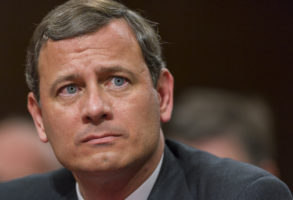
The Chief Justice has a chance to protect the Supreme Court, strike a blow for democracy, and overturn bad decisions.
Articles
The Wall Street Journal / November 30, 2021
DOJ Faces Steep Slope in United States v. Texas
Edward Whelan
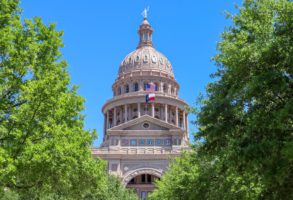
The justices who dissented from the Supreme Court’s denial of the abortion providers’ request for emergency relief against the Texas Heartbeat Act might think that they have a path to winning a majority in the DOJ case against the law. But the path is steep and deceptively treacherous.
Articles
National Review Online / October 26, 2021
A Reply to Hadley Arkes on Originalism and Roe
Edward Whelan
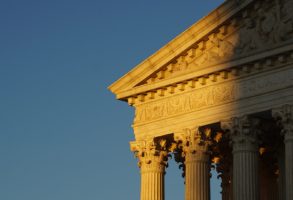
There are (at least) six justices on the Court who ought to recognize in the pending case of Dobbs v. Jackson Women’s Health Organization that the originalist case against Roe is overwhelming. It is neither sound in principle nor helpful in practice to try to persuade those justices that they may overrule Roe only if they make a moral argument against abortion.
Articles
National Review Online / October 4, 2021
Hadley Arkes’s Straw-Man Argument for a ‘Better Originalism’ on Roe
Edward Whelan
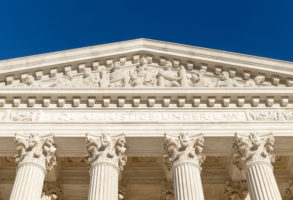
There is plenty of room for methodological disputes within originalism, but a recent critique of the dominant originalism is unpersuasive.
Articles
National Review Online / September 30, 2021
Denial Should Have Been Unanimous
Edward Whelan
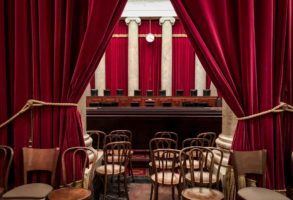
Last night the Supreme Court denied abortion providers’ beyond–audacious request for emergency relief against the Texas Heartbeat Act by a 5–4 vote. The feebleness of the four dissents shows that the denial should have been 9–0.
Articles
National Review Online / September 2, 2021
Chief Justice Roberts, Judicial Restraint, and Dobbs
Edward Whelan
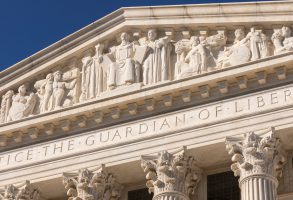
For Chief Justice Roberts and other proponents of judicial restraint, stare decisis considerations should be especially weak when—as with Roe and Casey—the precedent under examination has usurped the democratic processes.
Articles
National Review Online / August 25, 2021
Chief Justice Roberts, Stare Decisis, and Dobbs
Edward Whelan
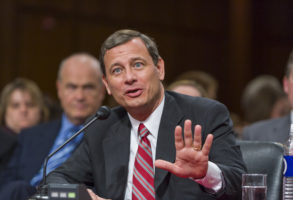
For anyone trying to understand how Chief Justice Roberts’s jurisprudential principles apply to the question whether he should vote to overrule Roe and Casey, the Chief’s concurring opinion in Citizens United v. FEC (2010) is essential reading.
Articles
National Review Online / August 24, 2021
A Quick Guide to Today’s Opinions in Fulton v. City of Philadelphia
Edward Whelan

In one of the most-watched cases of the term, the Supreme Court unanimously ruled today in Fulton v. City of Philadelphia that the city of Philadelphia violated the free-exercise rights of Catholic Social Services, a Catholic foster-care agency, by conditioning CSS’s continued provision of foster-care services on its agreeing to certify same-sex couples as foster parents.
Articles
National Review Online / June 17, 2021
Doubts About Constitutional Personhood
Edward Whelan
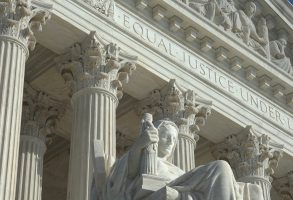
The only plausible path to imminent legal protection of the unborn has as its first step overturning Roe and restoring abortion policy to the states.
Articles
First Things / April 8, 2021
The Unsoundness and Imprudence of “Common-Good Originalism”
Edward Whelan

The immediate aftermath of Justice Amy Coney Barrett’s appointment to the Supreme Court is a strange time to urge conservatives to repudiate Justice Antonin Scalia’s twin interpretive methodologies of originalism and textualism.
Articles
Public Discourse / March 2, 2021
Justice Barrett Would Extend Scalia’s Legacy
Edward Whelan
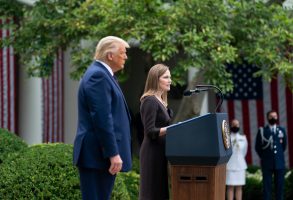
Amy Coney Barrett’s record, both as a judge and in her earlier career as a distinguished law professor at Notre Dame, shows both her profound commitment to Justice Scalia’s principles of textualism and originalism and her stellar ability to implement them.
Articles
National Review - October 19, 2020 issue / September 30, 2020
Why Finding Justices Who Will Overturn Roe v. Wade Hasn’t Been Easy, And What to…
Edward Whelan
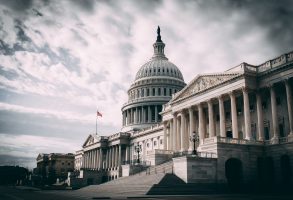
Any effort to seat justices who will overturn Roe needs to take account of the serious political obstacles that stand in the way. We must not surrender in the face of these obstacles. But we must recognize them in order to navigate through them.
Articles
Public Discourse / August 25, 2020
Sign up here to receive Bench Memos updates from Ed Whelan:
Bench Memos Archive:
BENCH MEMOS
Jack Goldsmith’s Road Map on <i>Trump v. United States<i/>
Published on 23 April, 2024
The Biden Administration’s ‘Intolerable Federal Power Grab’ on EMTALA
Published on 23 April, 2024
This Day in Liberal Judicial Activism—April 23
Published on 23 April, 2024
Justice Kagan Addresses Oral Advocate by Divorced Husband’s Surname
Published on 22 April, 2024